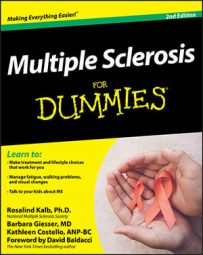For multiple sclerosis (MS) patients, the cognitive evaluation is a series of tests (generally referred to as a test battery, which includes paper-and-pencil items and puzzles of various types) that’s designed to evaluate the full range of cognitive functions. Evaluations are performed by neuropsychologists as well as some occupational therapists (OTs) and speech/language pathologists (S/LPs).
Even though the three disciplines approach the evaluation process a bit differently, and use somewhat different tests, all are interested in evaluating how and to what degree cognitive changes are affecting your ability to function at home and at work.
A full cognitive evaluation can take six to eight hours to complete, but it’s generally spread out over a couple of days to minimize the effects of fatigue. Also, shorter test batteries can be used to determine whether the more extensive battery is warranted.
Your neurologist may be able to refer you to a local clinician for the evaluation. Otherwise, the National MS Society can provide a list of neuropsychologists, OTs, or S/LPs in your area who have experience in MS (call 800-344-4867 or 800- FIGHT-MS).
If no one in your area is familiar with MS, you can also see a brain injury specialist because some of the symptoms are similar and the test battery is virtually the same. Full evaluations can be quite expensive, so make sure you discuss cost, payment options, and insurance coverage ahead of time.
The test items are designed to tap your abilities and limitations. You’ll likely find that some are easy for you and others much more difficult — just like the mix you had on your standardized tests in grade school and the SATs later on. You may also find — if you’re in fact experiencing cognitive changes — that some tasks that you once found easy now seem more difficult.
The clinician doing the testing will carefully study your test results and compare them to data from the general population of people in your age bracket. He or she will also use your school and work history as well as the results of certain tests to determine what your abilities were prior to MS and which, if any, seem to have changed from that baseline.
Most importantly, the clinician will use your scores to determine your cognitive strengths — because these strengths will be your most powerful tools to compensate for any deficits you may have. For example, say that you have a lot of trouble remembering stuff from telephone conversations or meetings (auditory memory), but you have a phenomenal memory for stuff you see or read (visual memory).
In this case, notes, pictures, or other visual cues could be helpful memory aids for you. Or, maybe you have memory problems but you’re a whiz at organization. You can figure out ways to substitute organization for memory in many areas of daily living.

